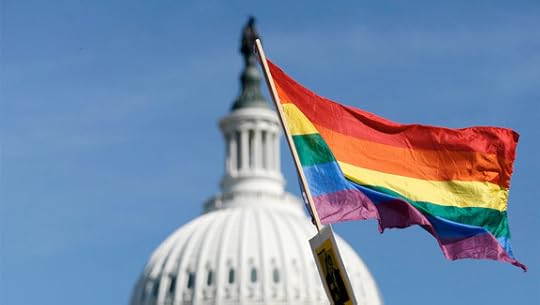Homosexuality, Identity, and the Grace of Chastity

Homosexuality, Identity, and the Grace of Chastity | Carrie Gress | CWR
Courage’s Fr. Paul Check on why chastity is an essential virtue for those with same-sex attraction—and for all Christians.
St.
Augustine is famous for having prayed, “Lord, make me chaste, but not yet.” Father
Paul Check, the director of Courage, suggests that chastity, like justice and
mercy, is indeed part of the Good News of Christ and to ignore it is
self-defeating.
The
Courage apostolate ministers to people with same-sex attraction who want to
live by the Catholic Church’s sexual teachings, providing self-governed
and anonymous group meetings around the country.
Father
Check, who served as an officer in the Marine Corps prior to being ordained to
the priesthood in 1997, spoke recently with Catholic
World Report about the Church’s wisdom in not reducing persons to an
identity based solely upon their sexual appetites, and how the average Catholic
can respond to the aggressive social agenda of the gay lobby.
Father Paul Check, director of Courage
CWR:
Within Courage, you make a clear distinction between same-sex attraction and
the gay lifestyle. Can you clarify the difference?
Father Check:
The most important question ever asked in human history was asked by Our Lord
when he said to the apostles, “Who do you say that I am?” It is the question of
identity, because it is from an understanding of identity that we then know how
to live in a way consistent with that identity. I won’t say that it is always
easy, because we have concupiscence, but in order for us to understand the
proper way of asking, we first have to clearly answer the question of being.
With
regard to the human person, the question of “Who am I?” is best answered with
the understanding that we are children of God redeemed by the blood of Christ
and called to be his disciples, and we are invited to grow in this life of
grace and glory in the life to come. There is the foundation of the most
important or essential part of our identity.
Now
there are other things that make up our identity as well. Our human family, and
where we are from geographically. These things are also important but not as
important as the fundamental question of our identity, our being children of
God.
We
are created as sexual beings and this story is told to us in the book of
Genesis, which is not a science book, of course, and does not tell us in
precise terms how man came to be but rather precisely who we are and who we are
intended to be and to whom we are to look for an understanding of our identity.
In that Genesis story it is made plain that God in his wisdom divided the human
race in such a way that human nature is expressed in the masculine and the
feminine. This is a very rich theological and anthropological question. But for
our purposes here, while there is such a thing as human nature, that nature is
always expressed very concretely in a person—a person that is either masculine
or feminine, so that sexual identity is also something that is integral to who
the person is. And in order to know who we are and how that sexual identity is
properly expressed we go back to the Genesis story and learn about the union of
man and woman, the fruitfulness of God in his plan, and how his gifts of
fertility are associated with the sexual faculty and are inherently bound up
with sexual intimacy.
With
that preamble, the reason that the Church, it seems to me, avoids the labels of
“gay,” “homosexual,” and “lesbian” as nouns is because in her maternal wisdom
and charity, and in following the story of who man is, she does not want to
collapse someone’s identity into only their sexual appetite. That seems unjust
and uncharitable. It takes a bit more charity to say that a person has same-sex
attraction than to use the labels that are very popular in the culture today.
In
saying this, of course, I am not in any way minimizing the strength, the
intensity, the duration or the frequency of the feelings of same-sex attraction
and how important these feelings are to someone’s self-understanding. We only
want to give same-sex attraction its proper label. Not too much, but clearly
not too little.
CWR:
As a result of that, what do you see in the gay lifestyle that then defeats the
ability to have a life of authentic happiness?
Carl E. Olson's Blog
- Carl E. Olson's profile
- 20 followers



